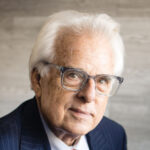The Oregon death bureaucrats, the media, and the ideologues work together to put a false happy face on assisted suicide in Oregon. No flaws, we are told. No abuses. Nothing to see but compasssssion.
But occasionally reality peeps through. For example, there was the case of Michael Freeland, who was given a lethal prescription two years before succumbing naturally to cancer — meaning he wasn’t legally qualified — and then specifically allowed by his psychiatrist to keep the overdose after he became so psychotic he was put under guardianship. Freeland eventually came out of his depression and died peacefully, having had the time to reconcile with his daughter — which wouldn’t have happened had he taken the prescribed poison.
And now, a letter published in a Montana newspaper from an Oregon doctor gives another example. From, “Oregon Doctor Could Not Save Patient From Assisted Suicide:
I am a doctor in Oregon, where assisted suicide is legal. A few years ago, I was caring for a 76-year-old man who presented to my office a sore on his arm, eventually diagnosed as melanoma. I referred him to specialists for evaluation and therapy. I had known this patient and his wife for more than a decade. He was an avid hiker, a popular hobby here in Oregon. As his disease progressed, he was less able to do this activity, becoming depressed, which was documented in his chart.
During this time, my patient expressed a wish for assisted suicide to one of the specialists. Rather than take the time to address his depression, or ask me as his primary care physician to talk with him, she called me and asked me to be the “second opinion” for his suicide. She told me that barbiturate overdoses “work very well” for patients like this, and that she had done this many times before.
I told her that assisted suicide was not appropriate for this patient and that I did not concur. I was very concerned about my patient’s mental state, and told her that addressing his underlying issues would be better than simply giving him a lethal prescription. Unfortunately, my concerns were ignored, and two weeks later my depressed patient was dead from an overdose prescribed by this doctor.
Yup. The agenda is always sold as a difficult decision made between patient and long-time doctor who knows the patient’s values, and then, only when there is no other way to alleviate suffering. But that is far from the reality.
Author Profile

Latest entries
- BlogJanuary 27, 2015Ready or Not: Here Comes 2015 in Bioethics!
- BlogOctober 20, 2014A Case of Surrogacy’s Gordian Knot
 BlogAugust 19, 2014Transhumanism’s Eugenic Authoritarianism
BlogAugust 19, 2014Transhumanism’s Eugenic Authoritarianism- BlogAugust 13, 2014Suicide Cult Pushes Home Made Suicide Kits

